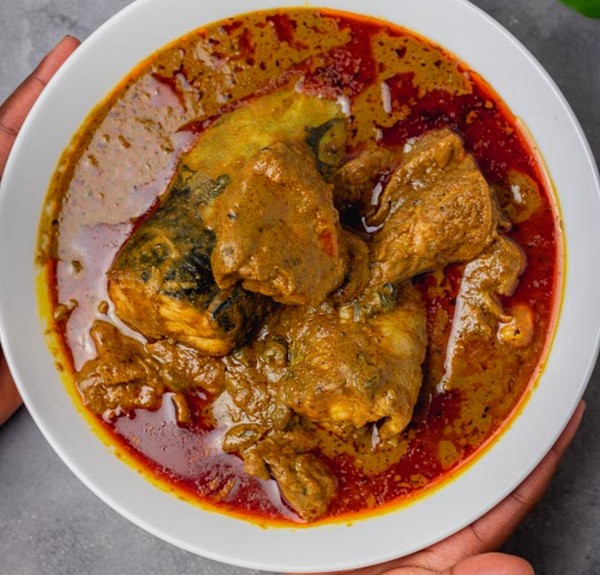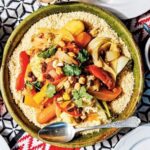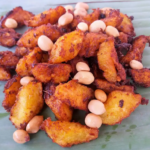West African cuisine is renowned for its bold flavors and vibrant dishes, and one such culinary gem is Banga Soup. Also known as Ofe Akwu in Nigeria or Palm Nut Soup in other parts of West Africa, this delectable soup is a testament to the region’s rich culinary heritage. Made from palm nuts, an essential ingredient in West African cooking, Banga Soup offers a unique combination of richness, creaminess, and a burst of flavors that will transport you to the heart of West Africa.
At the core of Banga Soup is the palm nut, which comes from the African oil palm tree. The palm nuts are harvested and then processed to extract the creamy and flavorful palm nut pulp. This pulp serves as the base for the soup, giving it its distinctive taste and texture. The palm nut pulp is rich in natural oils, which lend a velvety smoothness and a delightful nutty flavor to the soup.
The preparation of Banga Soup involves a meticulous process that requires time and patience. The extracted palm nut pulp is gently cooked with an array of aromatic spices and herbs. Ingredients such as onions, garlic, ginger, and chili peppers are sautéed to release their flavors, creating a tantalizing aroma that fills the kitchen. Traditional spices like uziza seeds, ehuru (Calabash nutmeg), and crayfish are often added, adding depth and complexity to the soup.
Meat, fish, or seafood is usually incorporated into Banga Soup, making it a hearty and satisfying dish. In West Africa, goat meat, beef, chicken, or fish are commonly used, providing a rich and flavorful protein component. Smoked or dried fish, such as catfish or stockfish, are also popular additions, infusing the soup with their distinct smoky flavors.
One of the highlights of Banga Soup is the inclusion of various vegetables and leafy greens. These additions not only contribute to the nutritional value of the soup but also add vibrant colors and textures. Common vegetables used in Banga Soup include spinach, bitter leaf, pumpkin leaves, and water leaves. These greens are added towards the end of the cooking process to retain their freshness and bright hues.
Banga Soup is often served with a starchy accompaniment, such as fufu, pounded yam, or eba (garri), which helps to balance the richness of the soup and provides a satisfying meal. The combination of the creamy, nutty soup with the soft and fluffy fufu creates a delightful contrast of flavors and textures.
In West African culture, Banga Soup holds a special place and is often prepared for festive occasions, family gatherings, or as a special treat for guests. It is a dish that brings people together, fostering a sense of community and celebration.
The flavors of Banga Soup are truly unique and unforgettable. The richness of the palm nut pulp, combined with the aromatic spices, tender meats, and vibrant vegetables, creates a symphony of flavors that dance on the palate. Each spoonful is a journey to the heart of West Africa, where culinary traditions and cultural heritage intertwine.
Whether you have a passion for exploring different cuisines or simply appreciate a hearty and flavorful soup, Banga Soup is a must-try dish. Its depth of flavors and the warmth it brings to the table will leave you craving more. So, embrace the flavors of West Africa and indulge in the rich and aromatic experience of Banga Soup.








